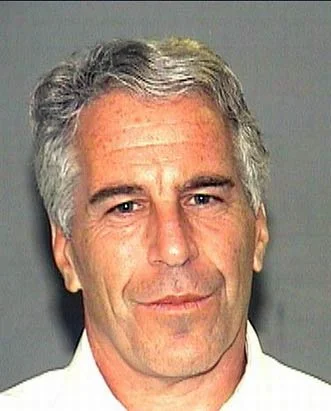Chris Powell: The Epstein scandal: 'No one that couldn't be bought'
Jeffrey Epstein in a 2006 police mug shot
MANCHESTER, Conn.
Vile as financier Jeffrey Epstein seems to have been, many if not most of the girls he targeted were not quite the innocent victims being luridly portrayed by news organizations, not all if any of them really being "sex slaves."
To the contrary, while most of them were minors, under 18, they retained freedom of movement and repeatedly returned to Epstein, traveled with him, or went where he told them to go to be used by his friends. They knew what they were doing was prostitution, even if the law rightly holds that minors are not fully responsible for themselves.
Epstein's character is a settled matter, just as it is settled that money is power and power tends to corrupt. So it may be more illuminating to ask how so many teenage girls could escape the custody of their parents for so long to become the playthings of Epstein and his friends without inciting at least suspicion back home.
There seem to be two explanations. First is that some girls did not have much in the way of parents, so they were more vulnerable. Second is that there was a lot of money in it for them, for Epstein paid them well -- so well that many of his girls recruited others for him, and some even told the police that they loved him.
Having accepted such employment with Epstein, some of his girls now accuse him of ruining their lives and are levying claim to his estate. Others brought suit against him and then settled confidentially, choosing to take his money again without warning the world against him.
Epstein's most publicized accuser, Virginia Roberts Giuffre, now in her 30s, married, a mother, and living in Australia, has figured it out better than most news organizations. "Laughing the whole way through," Giuffre says, "Jeffrey thought it was absolutely brilliant how easily money seduced all walks of life -- nothing or no one that couldn't be bought."
Of course as the prototypical "sadder but wiser girl," Giuffre could apply her insight to herself most of all.
The corruptibility of human nature explains Epstein's success as a predator. Of course it does not excuse him. But it does invite reflection on the failure of society and the law to protect minors, and, really, the lack of interest in protecting them.
That children don't have parents is often the consequence of welfare and divorce policy.
Advertising and television sexualize children and bring the coarsest sex to the youngest audiences, especially those with negligent parents.
Even Epstein's friends and acquaintances who did not exploit his girls surely saw that something wrong was going on but did not report it. Long before he was elected president, one of those friends, Donald J. Trump, was quoted about Epstein's partiality to young women
Epstein was notorious a long time before he was prosecuted, and then his prosecution was so gentle that it has become a scandal in itself, suspected of having been meant to protect the most influential of his accomplices.
But lest people in Connecticut get too disdainful of Epstein and his circle, it should be remembered that had one of his underage playthings been impregnated, she could have been given another few hundred dollars in cash and been driven by limousine to any abortion clinic in the state, where nobody would have contacted her parents for approval or notified the police, state law concurring as much as Epstein in the concealment of statutory rape.
Chris Powell is a columnist for the Journal Inquirer, in Manchester.
